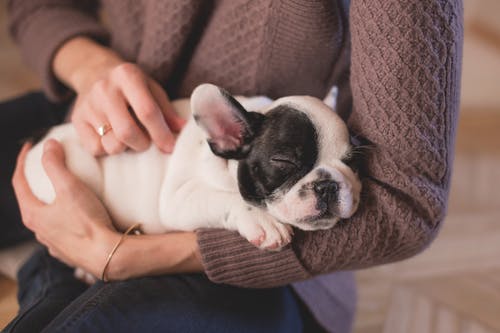Senior dogs are no exception to the rule concerning dietary needs. Your dog’s changing nutritional requirements can be even more challenging to understand as it ages. This usually leaves pet owners with a lot of unanswered questions.
Valuable Tips When Providing Food for Your Senior Dog
You might expect your dog to undergo several changes as they get older. You can not stop time, so why not embrace it? There is good news: the appropriate nutrients can help your aging dog stay healthy and happy for as long as possible. With numerous variables to take into account when selecting senior dog food, there is no such thing as a “one-size-fits-all” solution.
Depending on the breed and size, a dog can be called senior at a younger or older age. With your dog’s particular requirements and choices, it’s best to see a vet before customizing their diet. The following are vital considerations when providing an elderly dog’s food.
Give Them More Protein
Many individuals believe that elderly dogs must take in less protein. Muscle growth in older adults requires boosting protein intake, not decreasing it. In elderly dogs, muscle mass loss is a significant issue. Some seniors shed a lot of muscle mass that they can no longer walk alone. Protein needs for older dogs are around 50% higher than for younger canines.
On the other hand, adult dog maintenance diets frequently lack sufficient protein to satisfy these needs. For healthy older dogs, studies recommend a protein content of 28-32% on a dry-matter basis, particularly when weight loss is required. On top of that, ensure your senior dog gets constant checkups and routine wellness exams from the veterinarian to keep an eye on their health. You can be sure your dog will live a long life this way.
Add Supplements
Supplements like glucosamine and chondroitin are found in some elderly diets to help relieve the signs and symptoms of osteoarthritis. While omega-3 fatty acids aren’t necessary to a healthy diet for seniors, they might help protect against osteoarthritis and cognitive decrease. For ideal health, it is advised that you feed your dog a diet that is rich in vitamins and minerals.
A dog’s health could be adversely influenced by an excess or deficit of these crucial nutrients. Getting a vitamin or mineral supplement without further investigation is terrible if you’re concerned about your dog’s diet lacking these nutrients. Before giving your dog vitamins or any internal medicine, constantly see an animal internal medicine vet.
Make Their Food Chewable
When it pertains to feeding your dog, there are several valuable factors to consider to bear in mind. Chewing may be complicated or painful for older dogs due to dental issues. If you can not treat your dog’s condition, you may want to explore alternatively moistening their food or providing them canned or soft food. A smaller kibble size may be needed if you feed dry food.
You can get help from a dog dentist by having dog teeth cleaninig services if your dog has minor dental problems so that they can eat their beloved foods in their later years.
Bottom Line
Every dog’s health needs are unique, and at this period of life, each dog’s needs will develop at a different rate. Providing your senior dog with a top-quality diet will help them stay happy and healthy as they approach their golden years.




